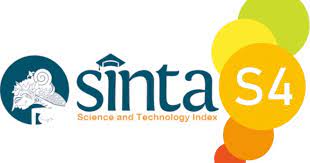English Language Proficiency Skills Among High School Students: Basis for an Intervention Program
DOI:
https://doi.org/10.22219/englie.v4i1.24759Keywords:
Speaking Skills, Intervention Program, proficiency skillAbstract
Speaking proficiency has special value anywhere in the world. It needs to be possessed by every individual to bring change to society. This clenches the amplified direction of the current study, where its primary objective is to assess the speaking skills of the SHS-HUMMS students of the DNHS. This study envisioned identifying the speaking factors in terms of grammar, vocabulary, aspects of discourse, pronunciation, and interaction. It utilizes the quanticorrelational descriptive method, which uses the purposive sampling procedure. Standardized rubrics for speaking skills were utilized, tabulated, and interpreted using the appropriate tools. This was further validated by the concurrent opinions of two language experts in the area of linguistics. Overall, the findings revealed a speaking peculiarity in proficiency. This surfaced after the data were treated with statistical measures using frequency and percentage, Kruskal-Wallis H-value for pairwise comparison, ANOVA, and Shapiro-Wilk for multi-variant normality. This was explained using a contingency table. Furthermore, the results showed no significant difference between the levels of indicators affecting speaking skills. Two factors that affected the respondents’ speaking skills, however, were pronunciation and interaction. Overall, an intervention program was put in place in order to address the speaking problem of the respondents.
Downloads
References
Al Othman, F. H. M. and Shuqair, K. M. (2013). The impact of motivation on English language learning in the Gulf States. International Journal of Higher Education, 2(4), 123-130.
Atay, D., Kurt, G., Çamlıbel, Z., Kaşlıoğlu, Ö., & Ersin, P. (2011). The role of intercultural competence in foreign language teaching. Inonu University Journal of Faculty of Education (Special Issue), 10(3), 123-135.
Dincer, A.& Yesilyort, S. (2013). Pre-service English teachers’ beliefs on speaking skills based on motivational orientations. English Language Teaching 6, (7) p.88-95
Erickson D. & Astorga, C. (2015). The relationship between listening proficiency and speaking improvement in higher education: Considerations in assessing speaking and listening. Higher learning research commissions ,5 (2) p. 63-78.
Eslit, Edgar. (2019). Listening and Speaking Skills of Senior High School: Towards A Progressive Communication Program. https://www.researchgate.net/publication/330080553
Jabbarova, A. (2020). Learning a foreign language in non-language institutions: the formation of professional foreign language competence. Журнал иностранных языков и лингвистики, 1(1), 42-46.
Lightbrown, Pasty M. & Spada, Nina. (2010). How Languages are Learned: Second Edition. Oxford: Oxford University Press.
Lumettu - 2018, Developing the Students‟ English Speaking Ability Trough Imprunto Speaking Method, 2018 J. Phys.: Conf. Ser. 953 012035
Patton, M. and Cocharn, M. (2012) A Guide to Using Qualitative Research Methodology. Médecins Sans Frontières, Paris.
https://evaluation.msf.org/sites/evaluation/files/a_guide_to_using_quali tative_research_methodology.pdf
Rao, P. S. (2019). The importance of speaking skills in English classrooms. Alford Council of International English & Literature Journal (ACIELJ), 2(2), 6-18.
Sari & Syarfi (2014), Enhancing Speaking Skills in the Material of Remedial Learning Through Community Language Learning in SMP Multazam Semarang. Retrieved from https://www.researchgate.net/publication/335941124_Enhancing_Speaking
Tuan, L.T.&Nhu, N.T.K. (2010). Studies in Literature and Language: Theoretical Review on Oral Interaction in EFL Classrooms.
Downloads
Published
How to Cite
Issue
Section
License
Copyright (c) 2023 Edgar Rendon Eslit, Analiza Valderama

This work is licensed under a Creative Commons Attribution-ShareAlike 4.0 International License.
Authors who publish with English Learning Innovation (englie) agree to the following terms:
- For all articles published in English Learning Innovation (englie), copyright is retained by the authors. Authors give permission to the publisher to announce the work with conditions. When the manuscript is accepted for publication, the authors agree to automatic transfer of the publishing right to the publisher.
- Authors retain copyright and grant the journal right of first publication with the work simultaneously licensed under a Creative Commons Attribution-ShareAlike 4.0 International License that allows others to share the work with an acknowledgement of the work's authorship and initial publication in this journal.
- Authors are able to enter into separate, additional contractual arrangements for the non-exclusive distribution of the journal's published version of the work (e.g., post it to an institutional repository or publish it in a book), with an acknowledgment of its initial publication in this journal.
- Authors are permitted and encouraged to post their work online (e.g., in institutional repositories or on their website) prior to and during the submission process, as it can lead to productive exchanges, as well as earlier and greater citation of published work (See The Effect of Open Access).
This work is licensed under a Creative Commons Attribution-ShareAlike 4.0 International License.
















1.png)












